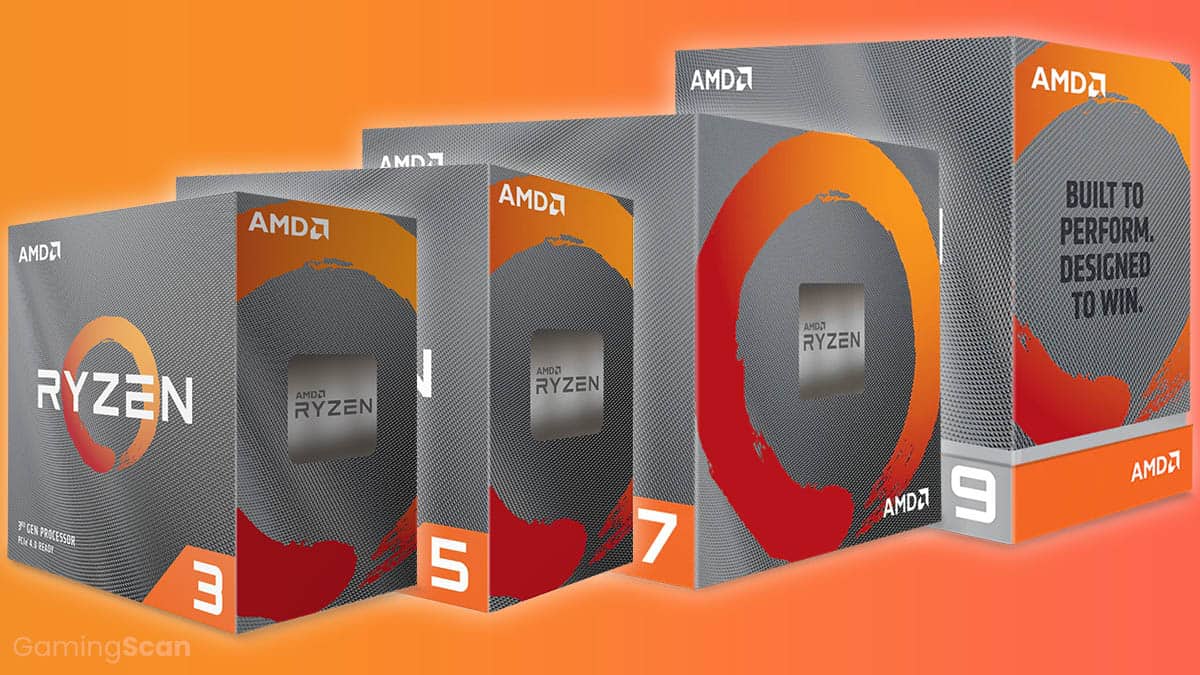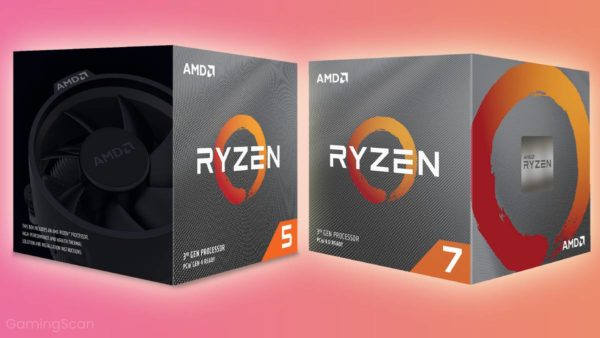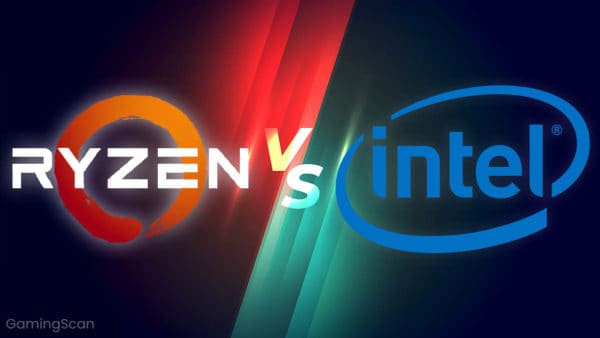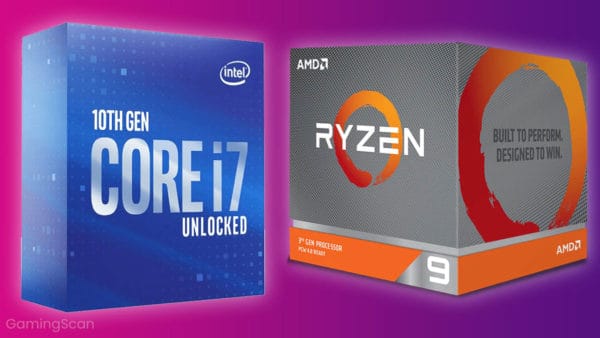AMD Ryzen CPUs have been the go-to choice for gamers for several years now. After all, this CPU line marked AMD’s return to form and provided some much-needed competition for the Intel Core series, offering lower prices and higher core counts.
So, if you’re set on getting a Ryzen CPU for your new build, read on, because we’ll go over all the important factors that you should keep in mind when choosing the right Ryzen model for your new PC.
Let’s get started!
Table of ContentsShow
What Ryzen CPUs Are There?
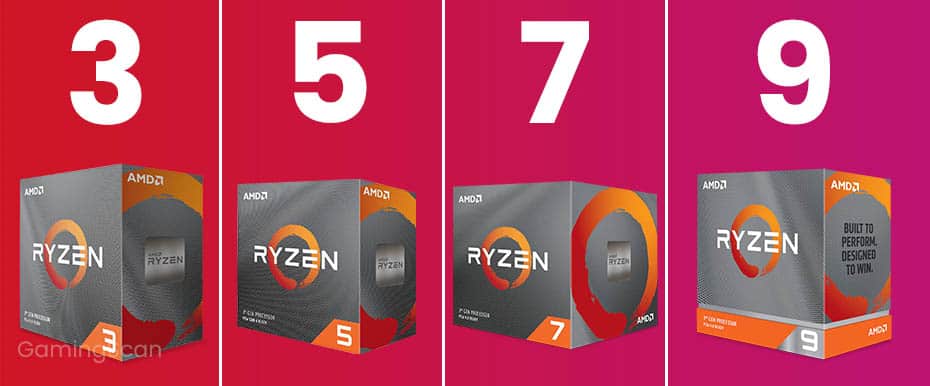
Similar to the Intel Core series, the Ryzen lineup is divided into the following brands:
- Ryzen 3 – Affordable budget solutions
- Ryzen 5 – Mid-range solutions that offer good value
- Ryzen 7 – Pricier performance-oriented models
- Ryzen 9 – Expensive enthusiast-grade CPUs
On top of those four, there is also the Ryzen Threadripper, although these CPUs are extremely expensive and geared towards professional users, making them a poor choice for a gaming PC.
That said, how do the above-listed Ryzen CPUs differ and how do they compare to one another? And more importantly – which should you pick if you’re building a gaming PC?
Core and Thread Count
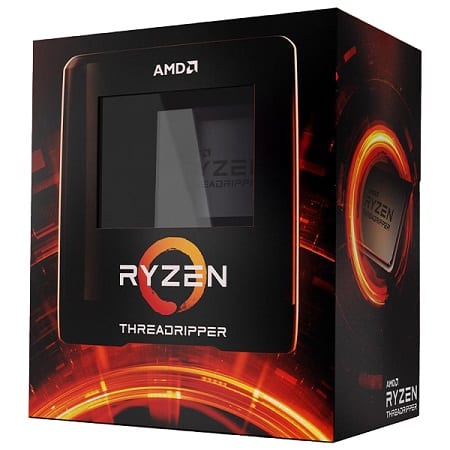
As mentioned in the introduction, one of the main advantages that Ryzen CPUs offered used to be their core and thread counts, as they were much higher than what you could get with similarly-priced Intel Core models, although Intel did finally catch up in this respect when their 10th generation Core CPUs rolled out.
And what does a high core/thread count get you?
Essentially, the more cores the CPU has, the more tasks it can handle simultaneously. Naturally, this can enhance overall PC performance but more and more games are now optimized to take advantage of multiple CPU cores, so the core count is more important for gaming now than it used to be some years ago.
Moreover, in recent years, multithreading has also become mainstream, and it allows a single CPU core to handle two tasks at once if needed, thus effectively doubling a CPU’s multitasking capabilities. Today, all of the latest mainstream gaming CPUs, AMD and Intel alike, come with this feature.
If we consider the latest Ryzen 3000 and Ryzen 5000 desktop CPUs, the Ryzen 3 models come with 4 cores and 8 threads, the Ryzen 5 ones feature 6 cores and 12 threads, the Ryzen 7 offers 8 cores and 16 threads, all the while the Ryzen 9 models come with either 12 cores 24 threads or 16 cores and 32 threads, depending on the exact model.
Now, the real question is, how many cores and threads do you actually need?
Well, it’s difficult to generalize on this subject as the hardware requirements and software optimization will inevitably vary from game to game, but the general consensus is that a 6-core CPU is currently the overall ideal pick for gaming in 2023.
Granted, quad-core CPUs will still cut it, especially if you’re on a tight budget. However, with the core and thread counts on the rise, a quad-core CPU wouldn’t be quite as future-proof, and newer games will likely be optimized to run better with more cores.
Meanwhile, an 8-core CPU tends to be overkill for now unless you’re getting a very powerful GPU or also intend on using some CPU-heavy software that can benefit from a higher core and thread count. That said, the 12 and 16-core Ryzen 9 models pack way more processing power than what a modern gaming PC requires, so as before, they are only really worth it for professional users.
Clock Speeds and Overclocking
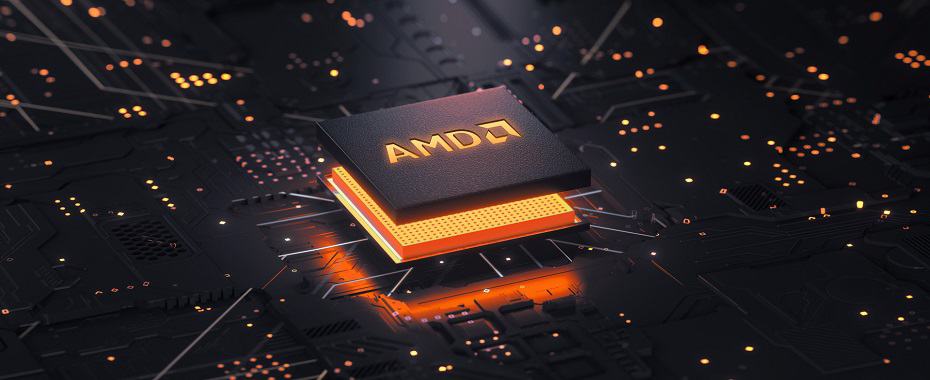
Next, there’s the question of clock speeds. Usually expressed in gigahertz, a CPU’s clock speed indicates how many operations a single core can carry out in the span of a second, so higher is always better, although higher clock speeds do mean that the CPU will be generating more heat.
When it comes to gaming, clock speeds and single-core performance are usually more important than core/thread counts are, which is why Intel CPUs tend to have a slight upper hand over AMD when it comes to raw in-game performance.
This is where we inevitably get to the question of overclocking: pushing the CPUs clock speed beyond the standard settings and getting extra performance out of it in the process.
While only those Intel Core CPUs that are marked with a “K” at the end of their model number can be overclocked, overclocking is readily available with all Ryzen models.
However, the question remains: should you care about overclocking a Ryzen CPU?
For the most part, overclocking is a hardware enthusiast’s game, and it appeals to the people who enjoy the process of tweaking the CPU settings in order to see how much extra performance they can get out of it without crashing it.
The in-game performance boost that you’d get by overclocking your average gaming CPU is really not all that noticeable, and it’s really not worth it if you’re pinching pennies or trying to get the best value for your money that you can, as you’d also have to spend extra on an aftermarket cooler if you truly wanted to push a CPU to its limits.
Cache
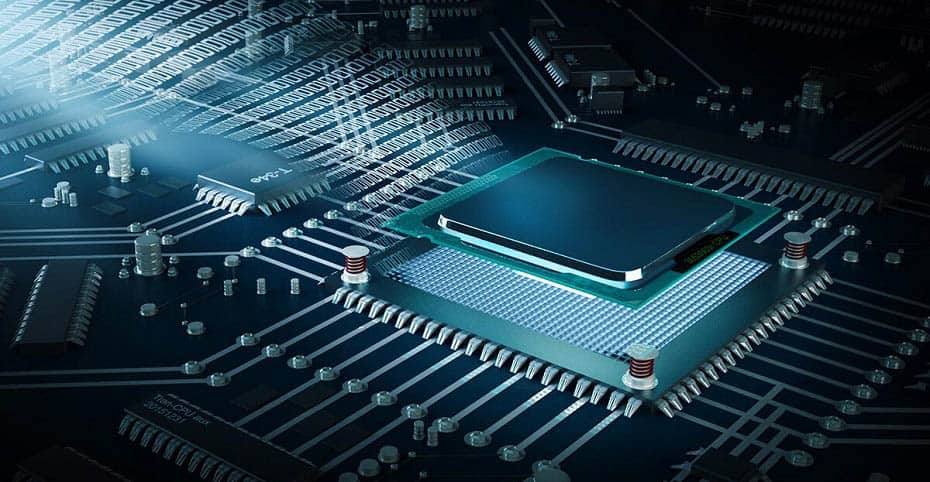
Next, there’s another entry on a CPU’s specification sheet that you might notice—the cache. So, what is the cache, and is it important for gaming?
Basically, the cache encompasses a relatively small amount of memory that the CPU uses to store important data that it might need to access quickly. And while it obviously helps with overall performance and stability, it’s not something that makes a very noticeable difference when it comes to gaming, especially since all the latest Ryzen CPUs come with similar cache sizes anyway.
CPU vs APU
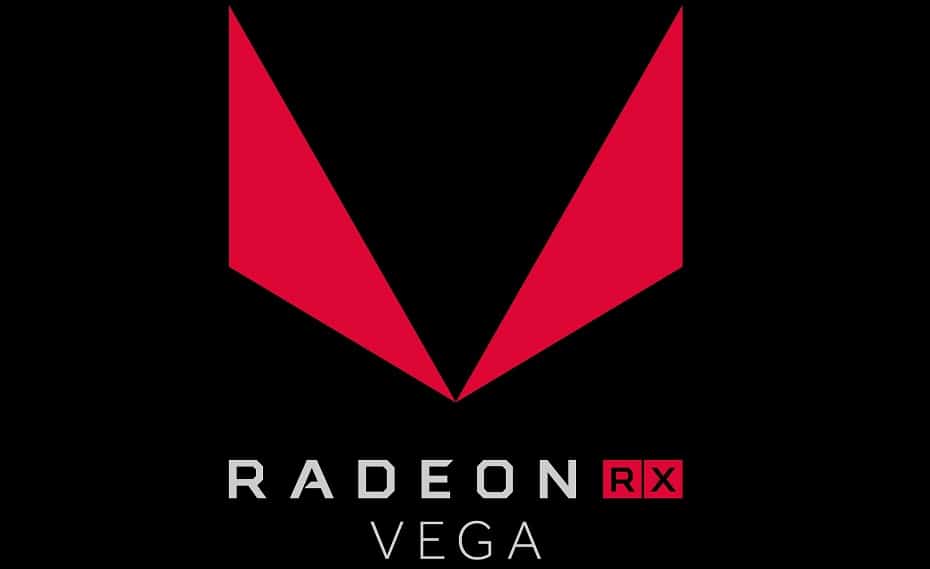
Now, you’ll notice that the Ryzen lineup encompasses both CPUs and APUs. While CPU stands for “central processing unit,” APU stands for “accelerated processing unit”, so how do these two types of processors differ?
Well, essentially, APU is just a marketing term introduced by AMD in the early 2010s in order to describe processors that come with CPU and GPU cores on a single die, thus eliminating the need for a discrete graphics card in some PCs.
Needless to say, APUs are great for PCs that aren’t intended to be used for any overly demanding tasks, but are they good for gaming?
Actually, they are. That is, some of them are, if you are on a really tight budget and you don’t mind playing games in a lower resolution and/or with lower settings. If that’s the case, then the Vega-equipped Ryzen APUs make for rather good deals, as you can see in the video below.
Granted, while these are some of the best integrated graphics seen so far, they still can’t really compare to what even some of the weakest modern dedicated GPU can do.
On top of that, these APUs offer significantly less processing power and are more likely to bottleneck most GPUs, so they are not good picks if you actually intend on using a dedicated graphics card.
Letter Designations
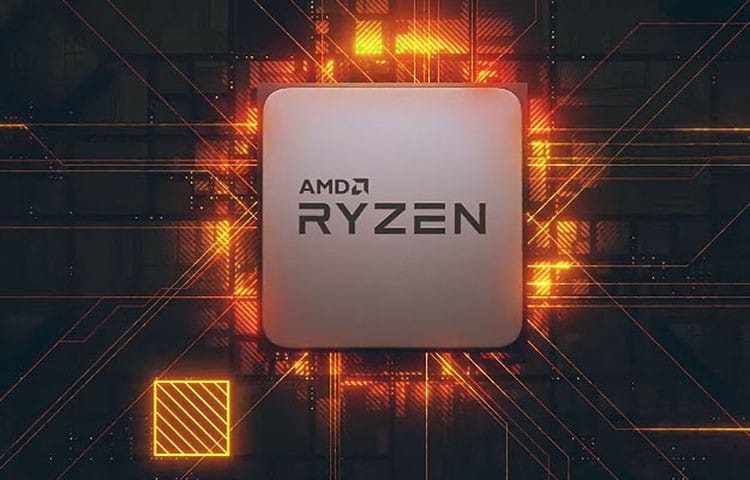
Much like some of Intel’s Core models, some AMD Ryzen CPUs come with certain letter designations at the end of the CPU’s model number. So, what designations does AMD have and what do they mean?
The two most common letter designations that you’ll encounter are:
- X – Indicates that the CPU has a higher boost clock and offers better overclocking performance, although as mentioned before, all Ryzen CPUs are unlocked
- G – Indicates that the processor is an APU
However, there are a few more designations that you won’t really see often:
- AF – Only used with two CPUs so far, the Ryzen 5 1600 AF and the Ryzen 3 1200 AF, which are based on the Zen+ architecture and were released as 12nm budget options
- E/GE – Used to indicate that the CPU/APU is more power-efficient
- XT – Only used for three updated CPUs so far (Ryzen 5 3600XT, Ryzen 7 3800XT, and Ryzen 9 3900XT) to indicate a minor increase in boost clock and overclocking performance that distinguish them from their predecessors
Socket And Chipset
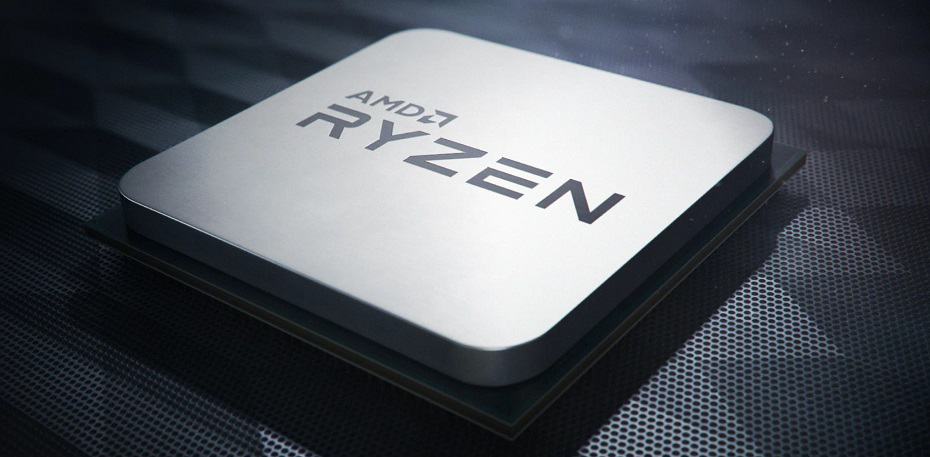
When shopping for a new CPU, compatibility is one of the key factors that you’ll want to keep in mind, and thankfully, AMD has fared much better than Intel has in this department over the past few years.
Namely, all the Ryzen CPUs (with the exception of the Threadripper models) use the standard AM4 socket, so there’s no need to worry about which socket or which version of the socket you need to get.
However, not all chipsets support all CPUs, so you still need to make sure that the CPU you intend on getting is compatible with the motherboard’s chipset, and you can see a list of AM4 chipsets here.
What Generation CPU Should You Get?
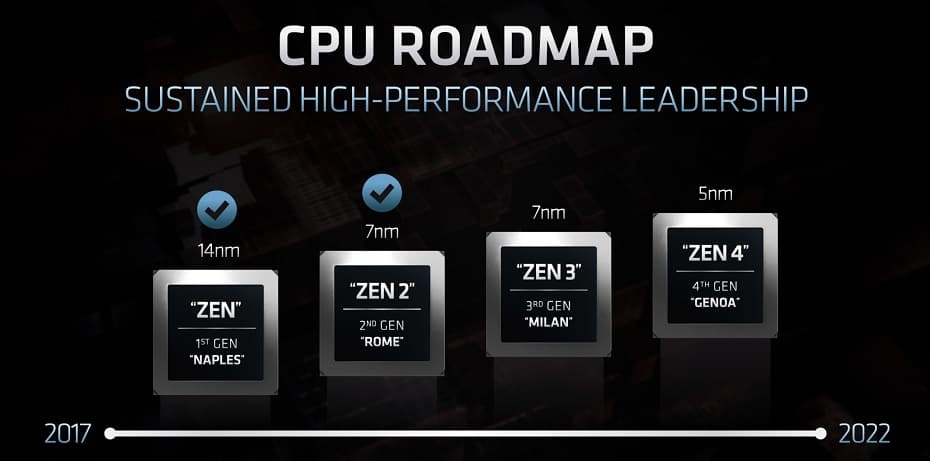
There are new CPUs coming out year after year and it is often tempting to simply go for the “latest and greatest” when shopping for a new component. But do you really need the latest tech or can you save some money by going with an older CPU?
Generally, going with the latest CPUs is the best course of action, as the prices of older CPUs seldom drop low enough to make the savings really worth it. Rather, they can actually increase, as the demand for these older CPUs still exists and no new ones are being manufactured.
Granted, you can still catch a good deal on a last-gen CPU, but if you really want to save money, the best course of action would be to get a CPU used rather than new. Sure, there are always risks involved when buying used components, but CPUs count among the “safer” components in this respect.
As long as you use common sense and keep in mind the usual factors that you should look out for when buying used hardware, i.e., whether the seller has good reviews, whether they kept the box and the documentation, whether they seem like they know what they’re talking about, etc., you should be fine.
Each subsequent generation of Ryzen offers a relatively minor boost in performance compared to the one that preceded it, but these gaps in performance get more noticeable as time goes on and when you compare CPUs from generations that are farther apart.
So, if you’re on the fence between, say a Ryzen 5 3600X and a Ryzen 5 5600X, the former might be a good investment if you can catch it at a discount or you’re buying it used. However, we wouldn’t advise getting a Ryzen 2000 or older model unless you’re really pinching pennies and are buying a used CPU.
Is It A Good Time To Buy A New Ryzen CPU?
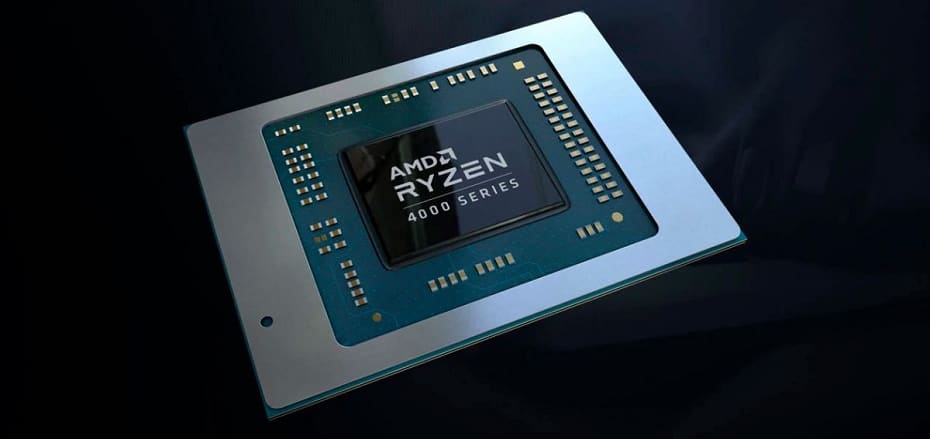
Finally, there’s one more question that needs answering—is now a good time to upgrade to Ryzen?
Well, it might actually not be, as AMD will be switching to a new AM5 socket with the Ryzen 6000 models that are due to launch in early 2022, meaning that the Ryzen 5000 models are the last ones to utilize AM4.
That said, if you’d like to keep your PC future-proof and want to keep it open for a potential upgrade a few years down the line, it might be a good idea to wait for the Ryzen 6000 lineup and the AM5 socket, especially since they are quite close now.
Of course, if you need a new PC immediately and you don’t like planning for too far into the future, now would be as good a time as any to upgrade.
Besides, as Intel and AMD have both demonstrated, just because a motherboard is using a particular socket doesn’t mean that it will support CPUs that come out three years later, even if they use that same socket, as chipsets are also a factor when it comes to CPU/motherboard compatibility.
Conclusion
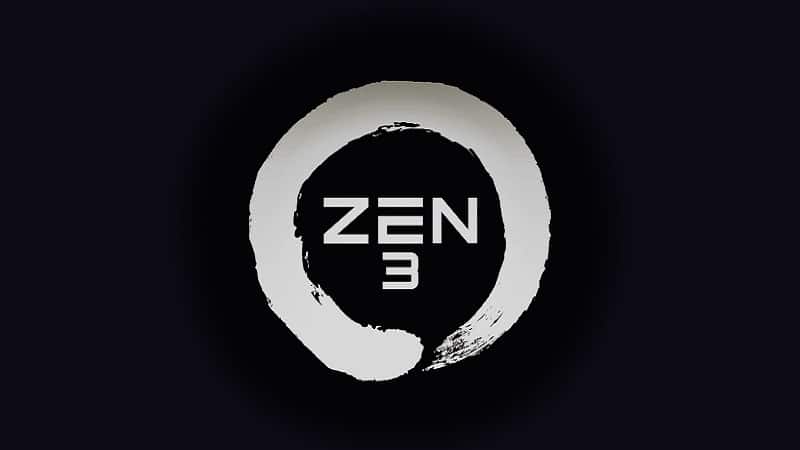
So, all things considered, what Ryzen CPU should you get?
As mentioned previously in the article, we’d say that a Ryzen 5 CPU would be the best value pick for most gamers, as these are relatively affordable and won’t really bottleneck any but the most powerful high-end GPUs to any significant degree.
That said, a Ryzen 7 might be good if you’re getting an expensive GPU and/or want something a bit more future-proof, though Ryzen 7 and Ryzen 9 are generally geared more towards professional users than the average gamer.
Meanwhile, Ryzen 3 CPUs are good for budget gaming PCs, although they aren’t quite as future-proof nor are they a good match for the more powerful GPUs.
Finally, Ryzen APUs are excellent if you’re short on money and need to put together the cheapest gaming PC that you can. Alternatively, these are also great if you only ever play the less demanding games that don’t really require the kind of GPU power that you’d get with a discrete graphics card.
And, generation-wise, as we’ve mentioned before, it’s usually a good idea to simply go with the latest generation unless you can find an older model at a low enough price that would justify the gap in performance.
And so, that would be all the major factors to keep in mind when choosing the right Ryzen CPU for your needs!
For a more detailed comparison of some of the best CPUs available right now, we suggest checking out our selection of the best CPUs for gaming in 2023, as you’re bound to find something that suits your needs!
